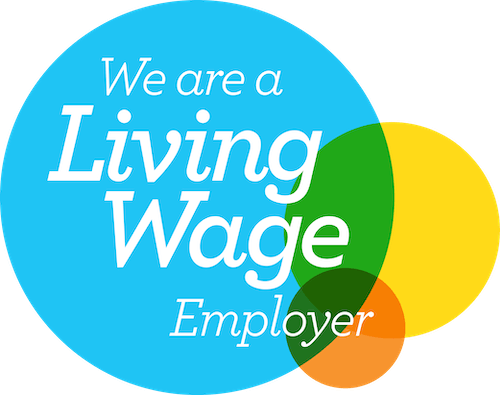DIY website design platforms like Squarespace, Shopify, Showit and Wix make it easier than ever to create and launch a website for your small business.
And they also make it easier than ever to launch a really bad website. Yep, even those websites that look dead sexy and stick pretty close to an expert-designed template can be big ol’ duds.
Now I’m not going to start preaching about why you should hire a professional website designer (but just in case, check out our web design packages) because I know most small business owners just don’t have the budget – heck, I’m a small business owner myself who doesn’t have the budget for our biggest bespoke projects.
But. There’s a whole heap of expertise held by website professionals that goes into their design and development projects. Stuff that peeps outside the web design industry don’t even know that they should be Googling the bejeebus out of. So here’s 6 non-negotiable elements of a successful small business website ya just need to know (from a very qualified expert website designer) (me).
What it means for a small business website to be successful
A successful website is a business tool that attracts and converts your visitors as efficiently as possible. Yes, it should look nice – but that is such a small-but-important ingredient in your digital apple pie of a website.
If a website isn’t generating attention from your audience and turning that attention into lovely lovely money – it’s just a pretty ornament. An ornament in the place of the most crucial commercial tool pretty much any small business has.
Whether you’ve DIYed or worked with a professional, there’s no getting around the fact that you 100% need to know the qualities of a successful website so that you can keep learning, growing, and improving your website with your small business.
1. Aesthetics and brand application
Your website needs to look nice. I wanted to start off with the element of a successful website design that quite a few small business DIY designers get right.
A professional-looking website reassures your audience that they’re dealing with professionals and not hobbyists – or worse, scammy nincompoops. It’s a great opportunity to apply that beautiful, contemporary brand identity you’ve already nailed, and appeal to your target customer with visuals and aesthetics that just ~*vibe*~ with your audience.
I did want to take a minute here to drop in a reminder that your website is just one execution and application of your brand identity. That’s my kinda-wanky way of saying that your website needs to look like it comes from the same family as your packaging, your stationery, your Instagram feed and anything else you’re sharing on behalf of your business.
2. Search engine optimisation (SEO)
Remember how a successful website needs to attract visitors? Well listen up, butterbubs because you are gonna love SEO.
People that arrive at your website without typing in your address or being directed by another piece of content are collecively known as Organic Traffic. Organic because they came to you organically, usually via a website search engine, and usually that search engine is called Google.
Organic has the colossal benefits of being amongst the highest converting AND on a healthy website, the most plentiful. For most healthy and optimised small business websites, I’d expected around 50% of all traffic to originate from search engines like Google.
Search engine optimisation, or SEO, is unsurprisingly all about optimising your website to help those search engine send customers your way. That means providing information and content that thoroughly describes your business and products, and formatting it in a way Google can understanding super easily.
SEO is a topic I cannot stop writing about – including tonnes of totes free how-to guides – all over our Studio Cotton blog. So check it out. Seriously it is one of my 6 non-negotiable elements of a successful small business website after all.
Thoughtfully crafted websites for lovely small businesses
Utterly splendid websites designed & built exclusively for small businesses (with all the bells and even more whistles).

3. User Experience (UX)
Every time I chat about User Experience, I start by pointing out that yeah – that’s a silly acronym. In the 10+ years that UX has been a part of my job though, I’ve not bothered to find out why it’s UX and not UE – I guess I like a little mystery in life.
Anyway.
UX is all about structuring a website to work with human behaviour to achieve our desired outcomes, i.e. checkouts and enquiries. It’s about optimising for those conversions I mentioned.
A lot of UX boils down to one principle – don’t make people think. The more brain power your customer has to spend working out how to find stuff on your website, the less brain power they can dedicate to falling in love with said stuff.
For example, logos and menus are always at the top of a desktop website because that’s where humans expect to find them. Putting them somewhere else would add thinky friction to your customer’s visit, and decrease the chances of each person converting.
Luckily, humans are pretty darn predictable. When I open a website in search of a neat outfit for brunch by the park, I look straight for that main menu and the word ‘jumpsuits’. If that menu were missing, or placed somewhere ruddy weird, it adds to my mental load.
And TBH, as someone who is known for minimising their thinking capacity at all opportunties, me and half your audience might rage quit.
4. Website accessibility
A significant portion customers have disabilities that impact how they interact with your website.
Imagine a lovely café on your local high street, it has great coffee, thriving house plants, and cheese toasties with locally sourced artisanal chutneys. It also has a small step up to the front door, which creates a barrier for disabled customers who use wheelchairs.
A reasonable adjustment to ensure this café is not discriminating against customers with protected characteristics would be to provide a ramp for the step. They have the room, the budget, and the means btw – I checked with the imaginary café. They have just chosen not to get a ramp.

In fact, I think you’d agree that choosing not to provide a ramp would be a dick move. You might even remove the rampless café from your Sunday brunch itinerary after seeing a story about a disabled customer who was treated unfairly – even though those artisanal chutneys are out-of-this-world delicious.
Just as the café has a responsibility to provide a ramp, you have an ethical and legal responsibility to remove any barriers that prevent disabled customers from experiencing your business.
You cannot have successful small business website if your design choices are discriminatory.
5. Website security
One of the easiest to achieve and WAYYYYY too-often overlooked, you have a duty to keep your website secure – especially if it contains any customer data from enquiries and orders. If you feel your eyes rolling to the back of their sockets at the thought of a 3 minute dive into the importance of two-factor authentication, DW bbz.
Instead, bookmark my recent-ish blog 10 cataclysmic website security no-nos for small businesses for a day when you’re in the mood for something hella dry.
But do consider this is your official warning to stop re-using your passwords.

6. Legal compliance
Man if you thought website security was just the worst, I’ve got a treat for you. That treat being that I can’t write too much about website legals since I am not a lawyer. I am just a small business owner and website expert who knows your website needs to tick some legal checkboxes, I’m just not able to tell you exactly how.
Privacy policy. Terms & conditions. Delivery & returns. As well as data protection and accessibility compliance, there’s a handful of policies that you must publish on your website as part of running a small business.
So now you know 6 non-negotiable elements of a successful small business website, I’m going to tell you want to do: keep learning. In my extensive experience, the reason why so many small businesses have unsuccessful/non-successful/pre-successful websites is because their business has serious website blindspots.
Start seeking out expertise, workshops, grants and courses that fill those blindspots. And bbz, you’re doing a wonderful job by starting right here on the Studio Cotton blog.
PS. Also totes follow me on Instagram as I share even more tips on the grid 😉























